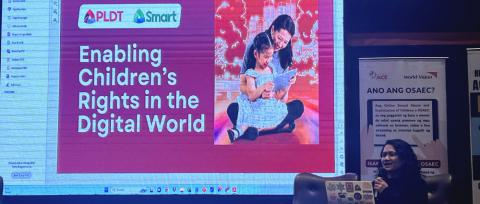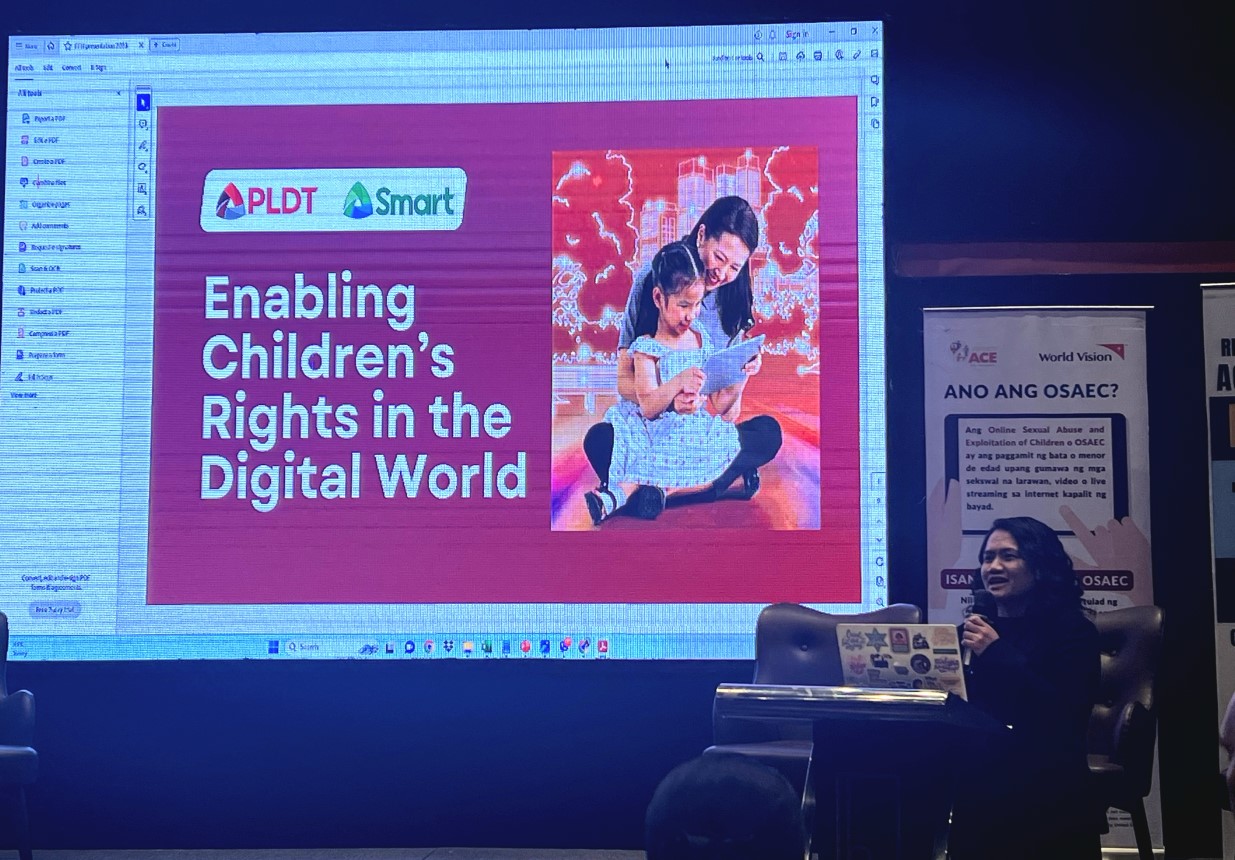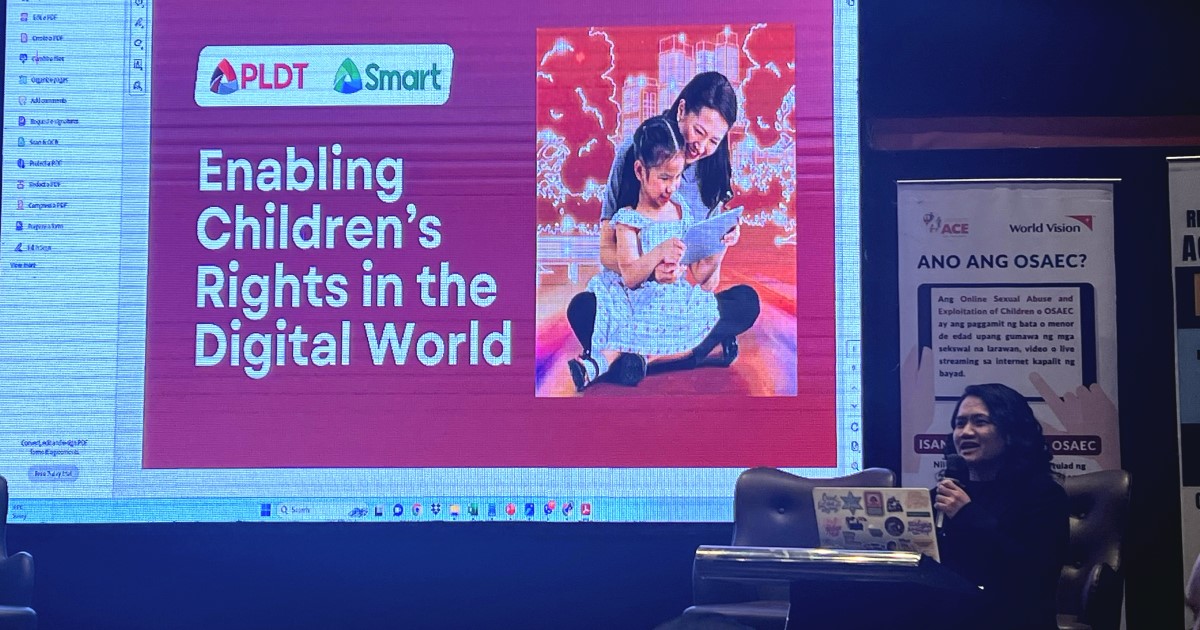
The PLDT Group lauds the Philippine government’s establishment of the Presidential Office for Child Protection (POCP) to combat rising cases of Online Sexual Abuse or Exploitation of Children (OSAEC).
Through Executive Order No. 67 issued on August 6, President Ferdinand Marcos Jr. created the POCP, mandated to monitor and harmonize government policies and programs involving the welfare and protection of children, anti-OSAEC, anti-Child Sexual Abuse or Exploitation Materials (CSAEM), and anti-child trafficking matters.
“We are one with PBBM’s administration in safeguarding the digital lives of our children. The PLDT Group’s commitment is to ensure that Filipinos have access not just to consistent high-speed connectivity, but also to safe and secure experiences online,” said PLDT and Smart Chairman and CEO Manuel V Pangilinan.
PLDT and Smart have long integrated children’s rights in their business frameworks, upholding Child Safeguarding Policies and identifying Child Protection as part of their environmental, social, and governance materiality areas.
PLDT and Smart invested heavily and utilize a pioneering Child Protection Platform that enables detection and blocking of CSAEM on the domain and the more difficult content level, without violating data privacy laws. Both telcos work with global organizations to source dynamic intelligence on CSAEM, including UK-based charity Internet Watch Foundation (IWF) and the Canadian Centre for Children Protection for its Project Arachnid. They are engaging further with the IWF to explore new strategies and keep abreast of emerging trends surrounding OSAEC, including the rise of self-generated CSAEM and the growing use of Artificial Intelligence to exploit children online.
As of end-June 2024, PLDT and Smart’s Child Protection Platform has blocked more than 28 billion attempts to open malicious domains. Specifically, the PLDT Group prevented more than 662,000 attempts to open OSAEC URLs and contents. Since June 2021, PLDT and Smart have blacklisted more than 1 million URLs and contents tied to CSAEM.
“At PLDT and Smart, we identify children as part of our most active end-users and as family members of our employees and customers. Cognizant of this, we are committed to the protection and promotion of children’s rights. Having a child rights lens thus aligns with our efforts to make the digital environment safer — part of our doing business responsibly,” said PLDT and Smart Chief Sustainability Officer Melissa V. Vergel de Dios.
Further to deploying technology solutions, PLDT and Smart have been actively sharing their industry expertise and best practices to support the government in crafting policies and boosting capacity to combat OSAEC. Both telcos earlier worked with both houses of Congress and with the Department of Justice in the development of the landmark legislation against OSAEC, the Republic Act 11930 or the Anti-OSAEC and Anti-CSAEM Law.
To help combat OSAEC in the grassroots, PLDT and Smart are also supporting technology and capacity-building efforts of the Barangay Council for the Protection of Children units in Cagayan de Oro, Iligan, Quezon City, and Angeles City, Pampanga, through a multi-year program with the youth organization Kids for Kids PH and the SaferKidsPH consortium of UNICEF, Save the Children, and the Asia Foundation.
PLDT and Smart have earlier backed the Scale of Harm study by the International Justice Mission and the University of Nottingham Rights Lab, which aimed to estimate prevalence of OSAEC in the Philippines and revealed that nearly 500,000 Filipino children have been trafficked to produce new CSAEM in 2022 alone.
PLDT and Smart also enable technology for the Makabata Helpline 1383 of the Council for the Welfare of Children. This provides the public with a channel to report cases of abuses and violations on child rights, including OSAEC. As of the first half of 2024, over 700 reports were made through the Makabata Helpline 1383 via mobile, official social media page, email, and personal referrals.
PLDT and Smart established their child safeguarding initiative back in 2018, including significant investments in pioneering technology, active engagement with local and international stakeholders including policymakers, regulators, and law enforcement, and implementation of awareness projects and grassroots initiatives.
These efforts to protect children and to beef up the Group’s digital infrastructure, particularly cybersecurity, are grounded in its drive to put customers at the heart of its operations.


